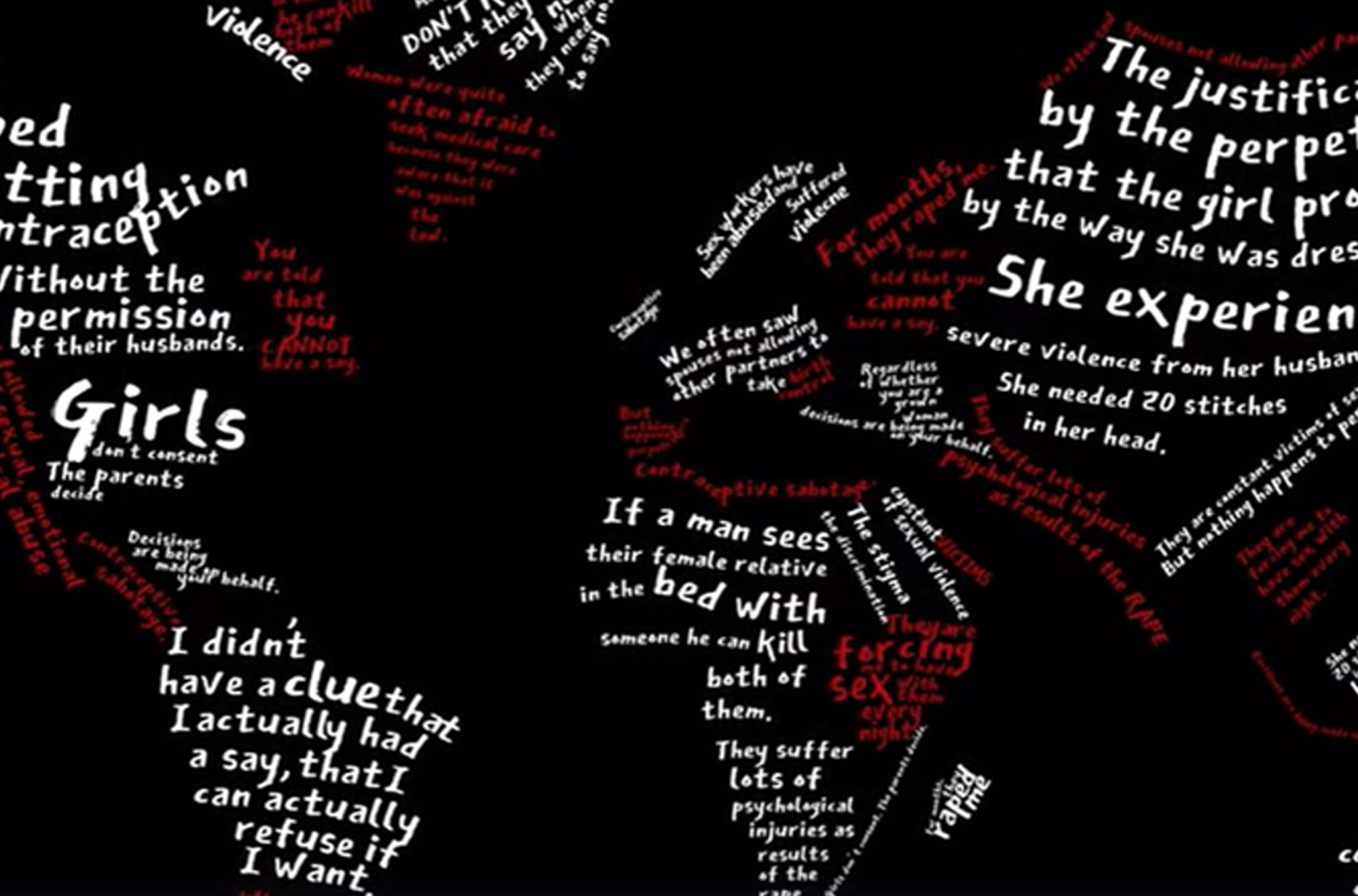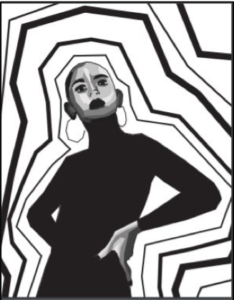
Link to report: My Body is My Own: UNFPA State of World Population Report 2021
Nearly half of women are denied bodily autonomy, says this new UNFPA report. Violations include rape, forced sterilisation, virginity testing, female genital mutilation and more.
Nearly half of women in 57 developing countries are denied the right to decide whether to have sex with their partners, use contraception or seek health care as well. The report shows the extent to which countries’ laws support or interfere with a woman’s right to make their own decisions. The data show a strong link between decision-making power and higher levels of education. In countries where data are available:
- 55% of women are fully empowered to make choices over health care, contraception and the ability to say yes or no to sex.
- 56% of countries have laws and policies supporting comprehensive sexuality education.
- 71% of countries guarantee access to overall maternity care.
- 75% of countries legally ensure full, equal access to contraception.
- 80% of countries have laws supporting sexual health and well-being.
UNFPA Executive Director Dr Natalia Kanem says: “In essence, hundreds of millions of women and girls do not own their own bodies. Their lives are governed by others.”
The report also documents ways that the bodily autonomy of women, men, girls and boys is violated:
- 20 countries or territories have “marry-your-rapist” laws, where a man can escape criminal prosecution if he marries the woman or girl he has raped.
- 43 countries have no legislation addressing the issue of marital rape.
- More than 30 countries restrict women’s right to move around outside the home.
- Girls and boys with disabilities are nearly three times more likely to be subjected to sexual violence, with girls at the greatest risk.

VISUAL by Rebeka Artim
Real solutions, the report finds, must take into account the needs and experiences of those affected. In Mongolia, for example, persons with disabilities organised to give direct input to the government about their sexual and reproductive health needs. In Angola, young people educated about their bodies, health and rights have been able to seek health care, use family planning, decline sex and petition for justice after sexual violence.
The report focuses on whether women can make their own decisions regarding health care, contraception and sex with their husbands or partners. Unfortunately, the words “safe abortion” did not make it into the announcement of the publication, or the main aspects of autonomy covered. The following aspects in the box below are discussed as the main determinants of women’s decision-making power, in addition to individual power, which was defined as knowledge on sexual and reproductive health and rights, health experience and agency:

In a steady scroll through the first quarter of this 164-page report, it seemed as if abortion wasn’t there, however. Then I got to page 41, in a section entitled “Able to choose”, which says:
“In Mongolia, for example, there have been reports of health workers performing abortions on women with disabilities without consulting them. Instead, the doctors seek consent from the women’s guardians, according to E… B…, a social worker at the Mongolian National Wheelchair Users Association….”
Forced marriage gets several pages. Forced pregnancy.. none.
Programmes to end or prevent female genital mutilation are often left out of humanitarian response plans, it says, but the absence of safe abortion in those same programmes… not noted.
Even female sexuality gets space. But when the “right to decide the number and spacing of children” comes up, the “A word” is left out.
As I was about to give up, I arrived at page 63 to find this, the great ICPD 1994 cop-out:

After that I scrolled faster because I figured that would be it. Oh, me of little faith!! Abortion came back on page 102, with this headline on a report of a woman who almost died from an unsafe abortion in Turkey, in spite of abortion supposedly being legal

And then abortion gets almost four more pages, and the text moves beyond what ICPD allows. Gold star UNFPA!!!
On page 112, in a chapter called “The power to say yes, the right to say no”, this statement is really worth focusing on: “Since early pregnancy is often a consequence of little or no access to school, information or health care, UNFPA helps protect and fulfil the rights and choices of adolescent girls through comprehensive sexuality education and by advocating for girls to complete their schooling.”
The chapter that follows, on what is required to achieve autonomy, is very strong. In fact, the whole report is very strong, and the illustrations are spectacular. If only it wasn’t still so nervous about supporting the right to safe abortion as exemplifying the epitome of the expression of women’s autonomy, or as I was taught in 1977: Abortion is the keystone of women’s liberation!

VISUAL by Rebeka Artim
FULL REPORT in five languages: EN ES FR AR RU ; REVIEW, by Marge Berer, 19 April 2021



